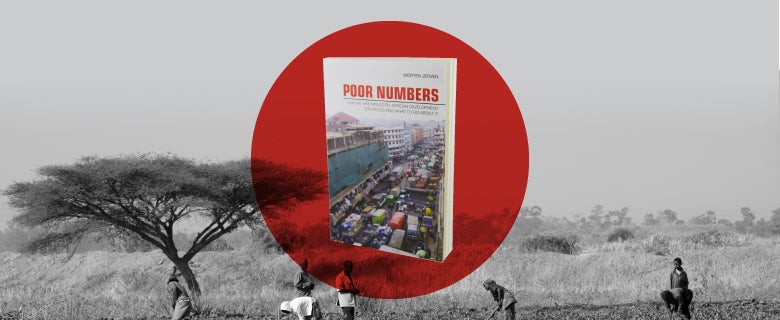Limbitless is working to change the way the world thinks about artificial limbs.
Even in the best financial times, budgets for development aid are hardly overflowing. Government leaders and donors have to make hard decisions about where to focus their limited resources. How do you decide which countries should get low-cost loans or cheaper vaccines, and which can afford to fund their own development programs?
Traditionally, one of the guiding factors has been per-capita Gross Domestic Product – the value of goods and services produced by a country in a year divided by the country’s population.
Yet there are problems with GDP as a statistic. It may be very inaccurate in the poorest countries. These problems are not just a concern for policymakers or hardcore people like me who read lots of World Bank reports. They are relevant for anyone who wants to use statistics to make the case for helping the world’s poorest people. The question of how we measure growth and improvements in people’s lives—and how we know what works—is very important.
I’ve long believed that GDP understates growth even in rich countries, where its measurement is quite sophisticated. This is because it’s so difficult to compare the value of baskets of goods across different time periods. In the U.S. for example, a set of encyclopedias in 1960 was expensive but held great value for families with studious kids. (I can speak from experience, having spent many hours with the World Book encyclopedias my parents bought for my sisters and me.) Now, thanks to the Internet, kids have access to far more information for free. How do you factor that into GDP? It’s very difficult.
The challenges with calculating GDP are particularly acute in sub-Saharan Africa, where weak national statistics offices and historical biases muddy the clarity of crucial measurements. Bothered by what he saw as problems in Zambia’s national statistics, Morten Jerven, an assistant professor at Simon Fraser University, spent four years digging into how African nations get their statistics and the challenges they face in turning them into GDP estimates. He details his findings in a new book, Poor Numbers: How We Are Misled By African Development Statistics and What To Do About It, which makes a strong case that a lot of GDP measurements we thought were accurate are far from it.
Jerven notes that many countries in the region have trouble measuring the size of their relatively large subsistence economies and unrecorded economic activity. How do you account for the production of a farmer who grows and eats his own food? If subsistence farming is systematically underestimated, then as an economy moves out of subsistence, some of the apparent growth may be just a shift to something that is easier to capture with statistics.
There are other problems with GDP statistics for poor countries. For example, many countries in sub-Saharan Africa don’t update their reporting often enough, so their GDP numbers may miss large and fast-growing sectors of the economy, like cell phones. A few years ago, Ghana updated its reporting and its GDP jumped by 60 percent. But many people didn’t understand this was just a statistical anomaly, rather than an actual change in the standard of living there.
In addition, there are several ways to calculate GDP, and they can produce wildly different results. Jerven mentions three in particular: the World Development Indicators, which are published by the World Bank and by far the most commonly used dataset; the Penn World Table, released by the University of Pennsylvania; and the Maddison tables, published by the University of Groningen and based on work by the late economist Angus Maddison.
These groups use the same basic data as input, but they modify it in different ways to account for inflation and other factors. As a result, their rankings of different countries’ economies can vary widely. Liberia’s GDP ranks it as either 2nd poorest, 7th poorest, or 22nd poorest in Sub-Saharan Africa, depending on which source you consult. I have reproduced one of Jerven’s tables to show you three of the most striking examples.
Which countries in Sub-Saharan Africa are growing and which aren’t? Traditionally, economists have used GDP to help answer that question. But GDP is a problematic number, especially for the poorest countries. Different sources of GDP data produce radically different rankings. Fortunately, we have better ways to measure a country’s well-being, as well as the impact of aid programs. That helps ensure that aid is effective and reaches the people who need it most.

It’s not just the relative rankings that differ. Sometimes one source will show a country growing several percentage points, and another source will show it shrinking over the same time period.
Jerven uses all these discrepancies to argue that we can’t be certain whether one poor country’s GDP is higher than another’s, and that we shouldn’t use GDP alone to make judgments about which economic policies lead to growth.
Does that mean that we don’t know anything about what works in development and what doesn’t?
Not at all. For years, researchers have used techniques like periodic household surveys to collect data. In health, a survey called the Demographic and Health Survey is done regularly to determine things like childhood and maternal death rates. Although they aren’t perfect, these methods aren’t susceptible to the same problems as GDP. Economists are also using new techniques like satellite mapping of light sources to inform their estimates of economic growth.
There are other ways to measure overall living standards in a country. While they aren’t perfect either, they do give us additional ways to understand poverty. One called the Human Development Index uses health and education statistics in addition to GDP. Another, the Multidimensional Poverty Index, uses ten indicators, including nutrition, sanitation, and access to cooking fuel and water. A measure called Purchasing Power Parity looks at how much it would cost to buy the same basket of goods and services in different countries, which helps economists adjust GDP to get better insight into living standards.
Yet it is clear to me that we need to put greater resources into getting basic GDP numbers right. As Jerven argues, national statistics offices across Africa need more support so they can obtain and report more timely and accurate data. Donor governments and international organizations such as the World Bank need to do more to help African nations produce a clearer picture of their economies. And African policymakers need to be more consistent about demanding better statistics and using them to inform decisions.
I’m a big advocate for investing in health and development around the world. The better tools we have for measuring progress, the more we can ensure those investments are reaching the people who need them the most.





